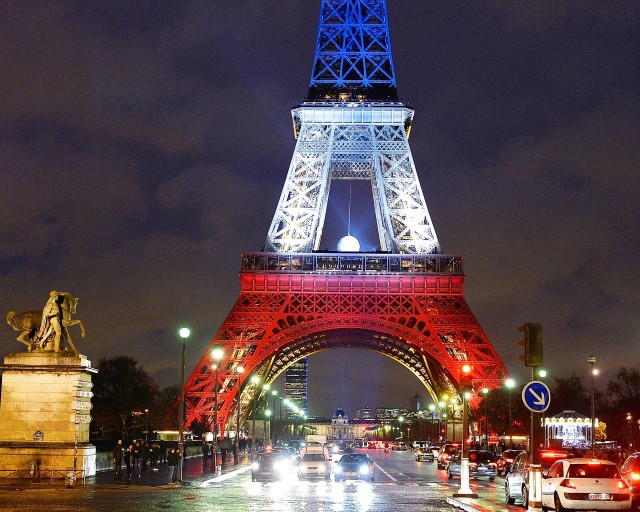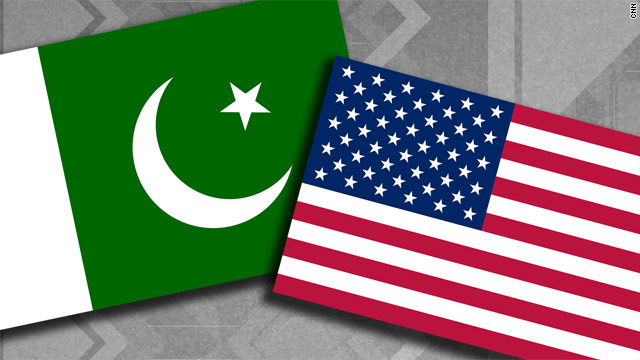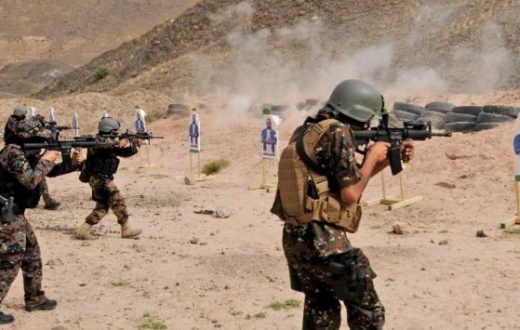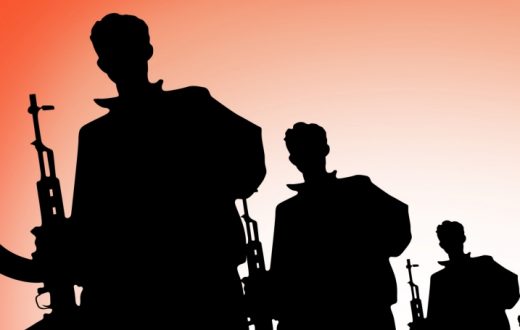On the evening of Friday, Nov. 13, eight people armed with assault rifles and suicide vests attacked several targets in Paris,France, killing 129 civilians. At least five of the attackers were French nationals and two were Belgians; all eight appear to have been radical Islamists, and the Islamic State has claimed responsibility for the attacks. French President Francois Hollande declared the killings to be an act of war and immediately scaled up France’s military operations, primarily by increasing its airstrikes in Islamic State territory. Taking advantage of a temporary state of emergency, French police have conducted more than 100 raids each night since the attack as they track down suspects.
While the attacks are obviously shocking, they probably will not have the same transformative effect as other major incidents such as 9/11 or the Madrid bombings, which led the states that were targeted to change their strategies. (9/11 prompted the United States to invade Afghanistan and ultimately Iraq, while the Madrid bombings persuaded Spain to withdraw its troops from Iraq.) By comparison, the French attacks, which are more akin to the July 2005 bombings in the United Kingdom, will likely accelerate the strategies France already had for achieving its domestic and foreign interests.
Domestic Concerns
From France’s perspective, the most immediate concern the Paris attacks raise is that French citizens were killed. Any government that fails to protect its citizenry risks being replaced, meaning that officials must work quickly to neutralize the attackers before doing the same for any accomplices who were directly involved. Then the government must try to prevent similar attacks from taking place in the future. The first two of these actions are already well underway, and progress toward the third is evident. Hollande has asked to extend emergency powers for three months, to deploy an extra 5,000 police officers over the course of two years, and to amend the constitution to broaden surveillance powers. By all appearances, France seems to be on the verge of becoming a closely watched state in the coming years — much like the United Kingdom, which has one surveillance camera in place for every 11 Britons.
The Nov. 13 attacks also play into domestic politics, and the government will want to be seen avenging its citizens and punishing the offending party for its actions. This appears to be a large part of the motivation behind Paris’ increased bombings of Islamic State targets overseas. Hollande is the leader of the center-left Socialist Party, which traditionally takes a softer line on social, security and privacy issues and is therefore vulnerable to recriminations from the public that it has not done enough to protect French citizens. Adding to this problem, France has experienced other terrorist attacks this year, most notably in January when gunmen attacked the offices of the Charlie Hebdo newspaper, and people expected the government to have learned from these experiences in addressing security threats.
Regional elections in December will give voters across the country a chance to show their displeasure with the government’s response, making the situation even more urgent for Hollande. The anti-immigration National Front has enjoyed a surge in support in recent years, with party leader Marine Le Pen polling strongly ahead of the 2017 presidential election. For the more moderate voter, there is also the center-right Republicans party headed by former President Nicolas Sarkozy. The former president has long divided public opinion with his tough stance on immigrants and security, which dates back at least to his time as France’s interior minister in the early to mid-2000s.
Implications for France’s European Ties
The Paris attacks have also exacerbated problems that have been brewing in France’s relationship with the rest of Europe. A passport found at the scene of the crime appears to be linked to an immigrant who passed through Greece and up through the Balkans to get to France within the past two months. Doubts have since been raised about the authenticity of the passport, but the damage has been done, and many in France are linking the attacks to immigrant flows. As a result, the Schengen Agreement, which allows free travel across borders within member states, is under serious threat. The immigrant link may or may not prove valid, but an even more damning piece of evidence has arisen against Schengen: the Belgian connection. Belgium has emerged as a key staging point of the attacks, and the perpetrators seem to have done a great deal of their planning in Brussels. Belgium’s connectivity, small size and membership in the Schengen area mean that it is extremely easy to enter several countries from Belgium within a short time. Consequently, many see the Schengen Agreement as a facilitator in the attacks.

The events of Nov. 13 have also altered France’s budgetary situation. In November 2014, France fell afoul of the European Commission for its fiscal laxity, and its 2015 budget wasn’t approved until several months into the year. This time around, the commission has been considerably less strict with its charges for the most part, mainly because of improvements in the overall economic climate, but it is still tasked with maintaining the union’s economic guidelines. Hollande’s Nov. 16 announcement that security concerns trump austerity, and that budgetary requirements will take a back seat since France is at war, cannot have been received well in Brussels, whether true or not.
Aside from the immediate considerations of the commission’s mood, France may still be able to borrow at extremely cheap rates largely because of the European Central Bank’s quantitative easing program, but this will not help its fiscal position. Borrowing to finance France’s heightened spending will layer onto the country’s already high debt levels. As a result, France will become even more firmly enmeshed in the Mediterranean group of eurozone countries with heavy debt burdens, relying on the European Central Bank and the prevailing economic climate to keep interest repayments low. At best, this will increase the chances of friction with Germany, and at worst, it will precipitate a debt crisis.
Older Problems
But France’s biggest concerns in the wake of the Paris attacks speak to some of the country’s much more deeply-rooted issues. Half of the attackers were Frenchmen. French law prohibits the inclusion of religious affiliation on national censuses, but estimates suggest that around 7.5 percent of France’s population is Muslim, with a great portion of that group of North African extraction. Most of the recent terrorist incidents in France have stemmed from this part of the population, which tends to be poorer and more isolated than other groups.
The roots of this reality trace back to France’s experiences in colonizing Algeria, Tunisia and Morocco in the 19th and early 20th centuries, and then to the messy independence processes these colonies underwent, particularly Algeria’s War of Independence from 1954 to 1962. Bombings, killings and police brutality on both sides of the Mediterranean created enmity between the two populations, which only continued as growing numbers of Algerians emigrated to France. After World War II, France experienced a significant growth spurt in its “Trente Glorieuses” (“Thirty Glorious Years”) and it needed cheap labor — a need North African emigres helped fill.
The newcomers made homes for themselves around France’s industrial centers, including Paris, Lyon and Marseilles, but their high numbers and low wealth, combined with existing antipathies, inhibited their ability to integrate. The country became dotted with pockets of poor, disaffected and mainly Muslim communities that struggled to find gainful employment and break the cycle of poverty in which they found themselves. It is from these communities that the Islamic State appears to have had some success in recruiting, and it is their problems that France must solve if it hopes to prevent the homegrown threats the Paris attacks brought to light.








